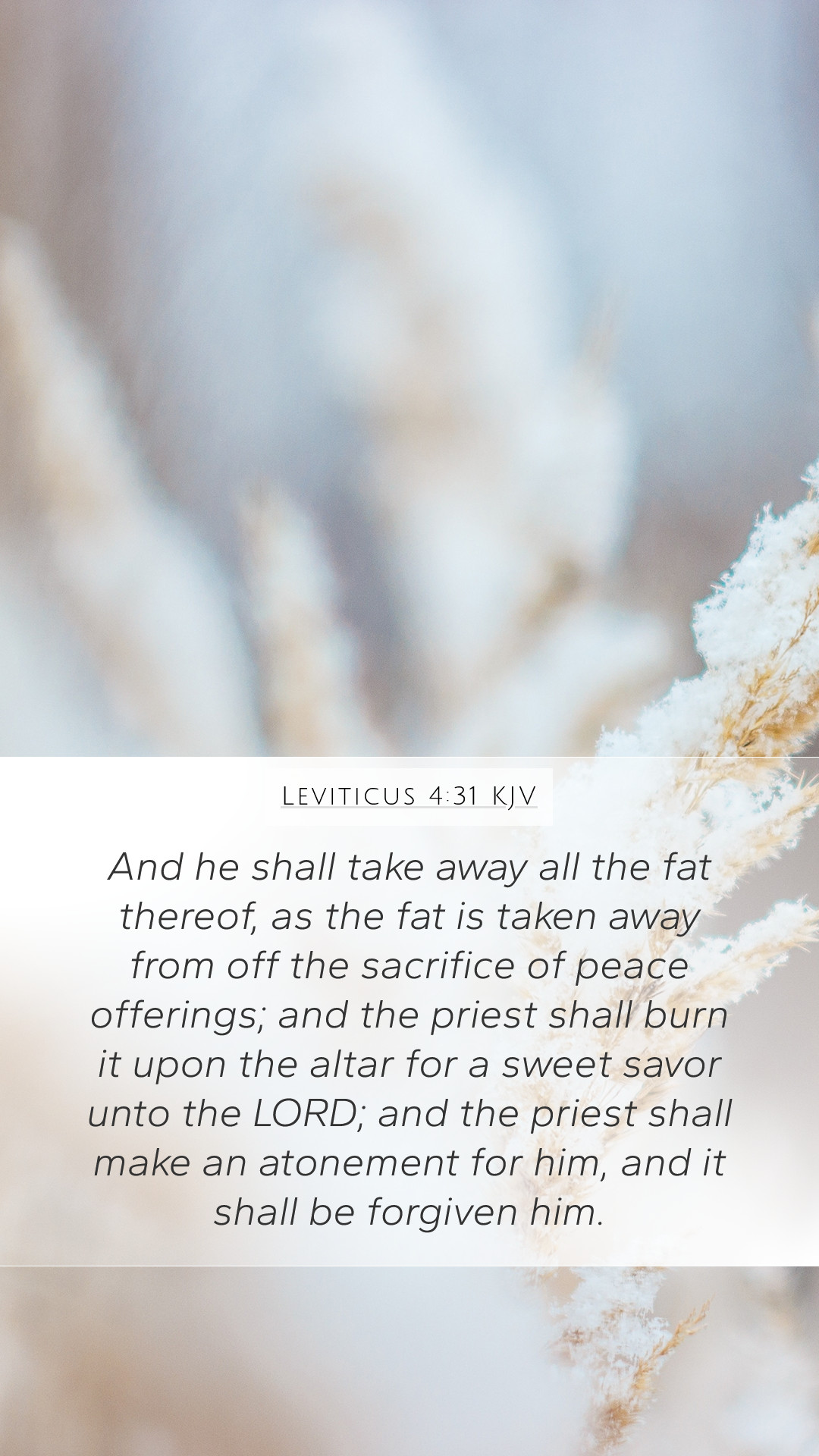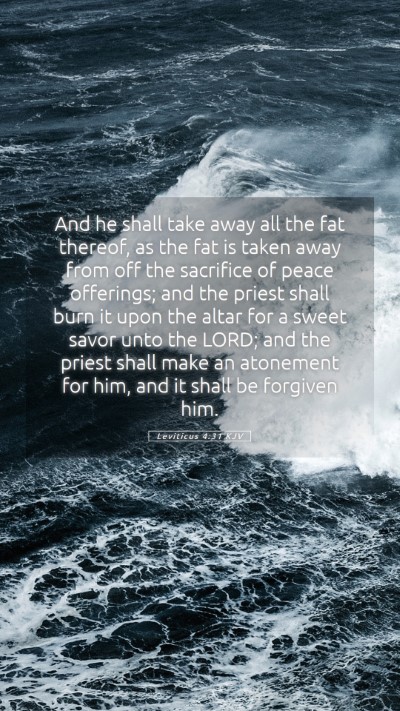Bible Verse Commentary: Leviticus 4:31
Verse Reference: Leviticus 4:31
This verse provides instructions for the sacrificial system in ancient Israel, specifically referring to the offering of sin sacrifices. The act of offering these sacrifices was integral to the communal and personal atonement of sins in Jewish worship practices.
Meaning of Leviticus 4:31
This verse illustrates the importance of purity and proper rituals in the practice of faith. It emphasizes that the removal of the fat from the offering signifies the dedication of the best parts to God. Here’s a deeper breakdown of its significance:
-
Context of Sacrifices:
In Leviticus, sacrifices serve as a means for atoning for sins. The removal of specific parts of the sacrifice shows what is deemed most valuable is given to the Lord.
-
Symbolism of the Fat:
Fat in biblical terms often symbolizes richness and abundance. By dedicating the fat, the offerer acknowledges God’s sovereignty and the importance of offering the best to Him.
-
Communal Aspect:
This verse reflects the community's reliance on sacrificial offerings for collective and individual righteousness, showcasing a societal understanding of sin and atonement.
-
The Role of the Priests:
The priests facilitated these offerings, representing a mediator role between God and the people, issuing a framework for approaching God with offerings.
Insights from Public Domain Commentaries
Based on the aggregations from commentaries, we can present the following insights:
Matthew Henry's Commentary
Henry emphasizes the importance of the atonement process, highlighting that the act of sacrificing is not merely a ritual, but a heartfelt action intended for reconciliation with God. He elaborates on how the people's sincere offerings please God and restore their relationship with Him.
Albert Barnes' Notes
Barnes focuses on the significance of the ritual’s details, underscoring that God is particular about how He is approached. He notes that the fat, representing the best part of the animal, indicates that believers should give their utmost to God—a principle that transcends Old Testament practices into modern spiritual life.
Adam Clarke's Commentary
Clarke discusses the procedural elements of the sacrifice, shedding light on the law of offerings. He points out that these rituals set a foundation for later practices and highlight God's mercy and the seriousness of sin, suggesting that even today, believers must take care to treat sacred matters with reverence.
Practical Application
Understanding Leviticus 4:31 and its context can guide contemporary believers in applying the principles of sacrifice and dedication in their lives:
- Dedication to God: Just as the Israelites offered the fat to God, modern believers are called to dedicate their best efforts, time, and resources to their spiritual commitments.
- Recognizing the Seriousness of Sin: The sacrificial system underscores the gravity of human sin and the need for atonement, prompting believers to reflect on their life choices in light of their faith.
- Value of Intention: The sacrificial act was about the intention behind it. Likewise, believers today should ensure that their actions reflect genuine devotion rather than mere obligation.
Cross References
This verse connects closely with several other scripture passages that explore themes of sacrifice and atonement:
- Leviticus 1:4: Discusses the need for atonement through offering.
- Hebrews 9:22: Highlights the significance of blood in making atonement for sins.
- Romans 12:1: Calls believers to present themselves as living sacrifices to God.
- Exodus 29:14: Further explains the details of sacrificial offerings.
- Psalm 51:17: Emphasizes God’s desire for a broken spirit and contrite heart over mere sacrifices.
Conclusion
Leviticus 4:31 serves as a powerful reminder of the significance of sacrifice in worship and the continuity of these principles through to modern faith practices. Engaging with such verses deepens one's understanding of Scripture and enhances personal spiritual growth. For those partaking in Bible study groups, this verse provides ample material for discussion on Bible study topics related to sacrifice, atonement, and devotion.


